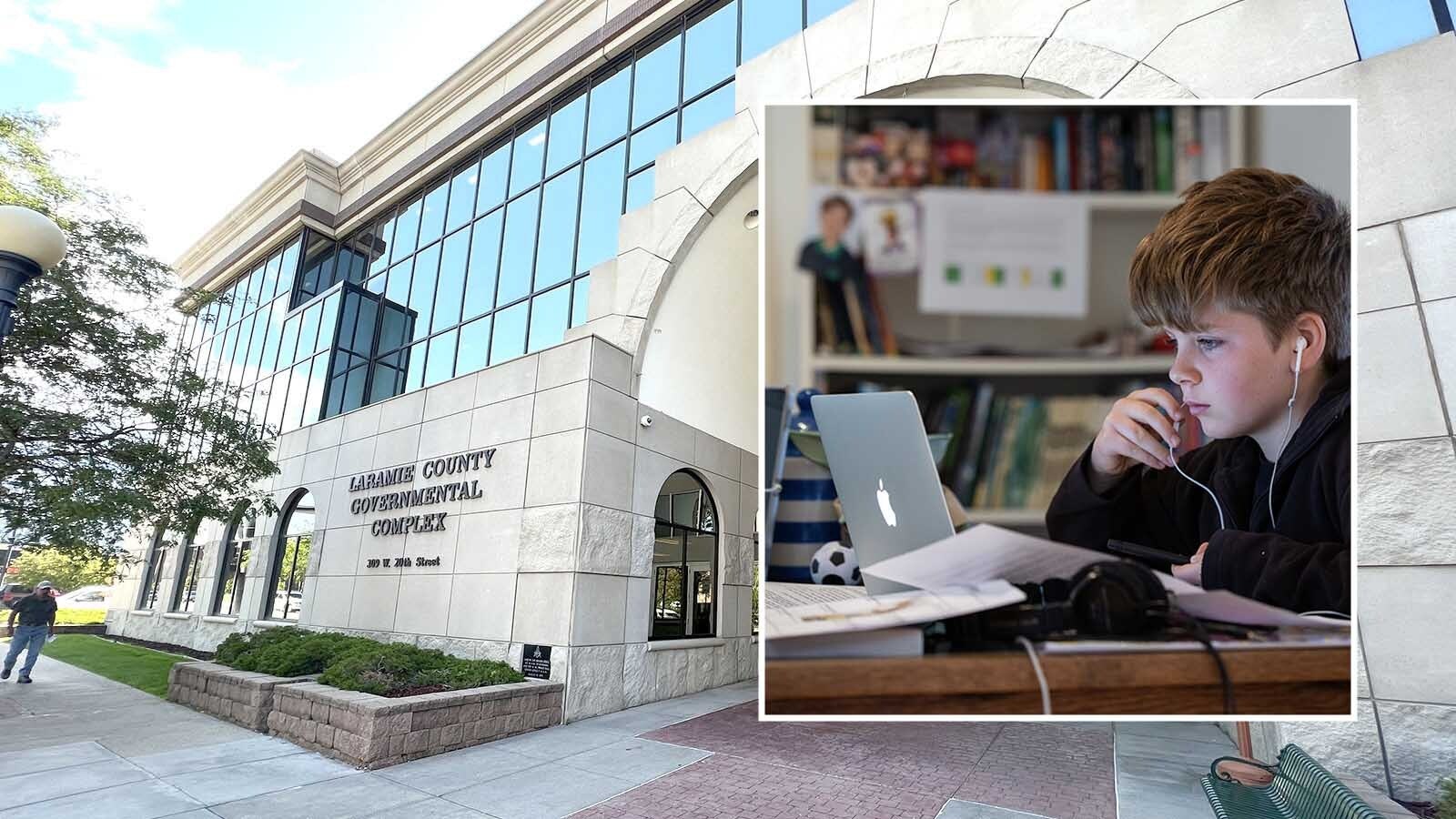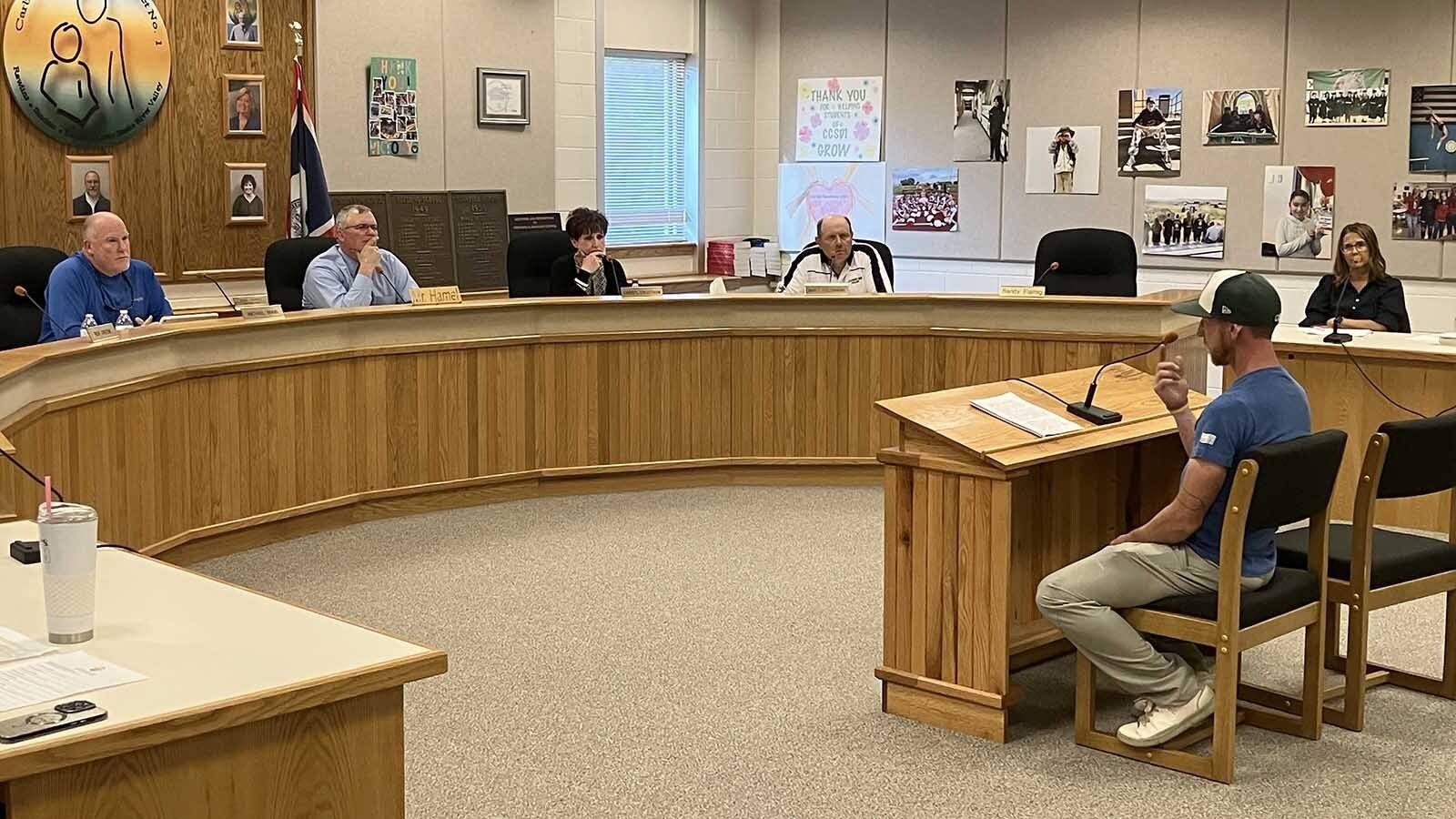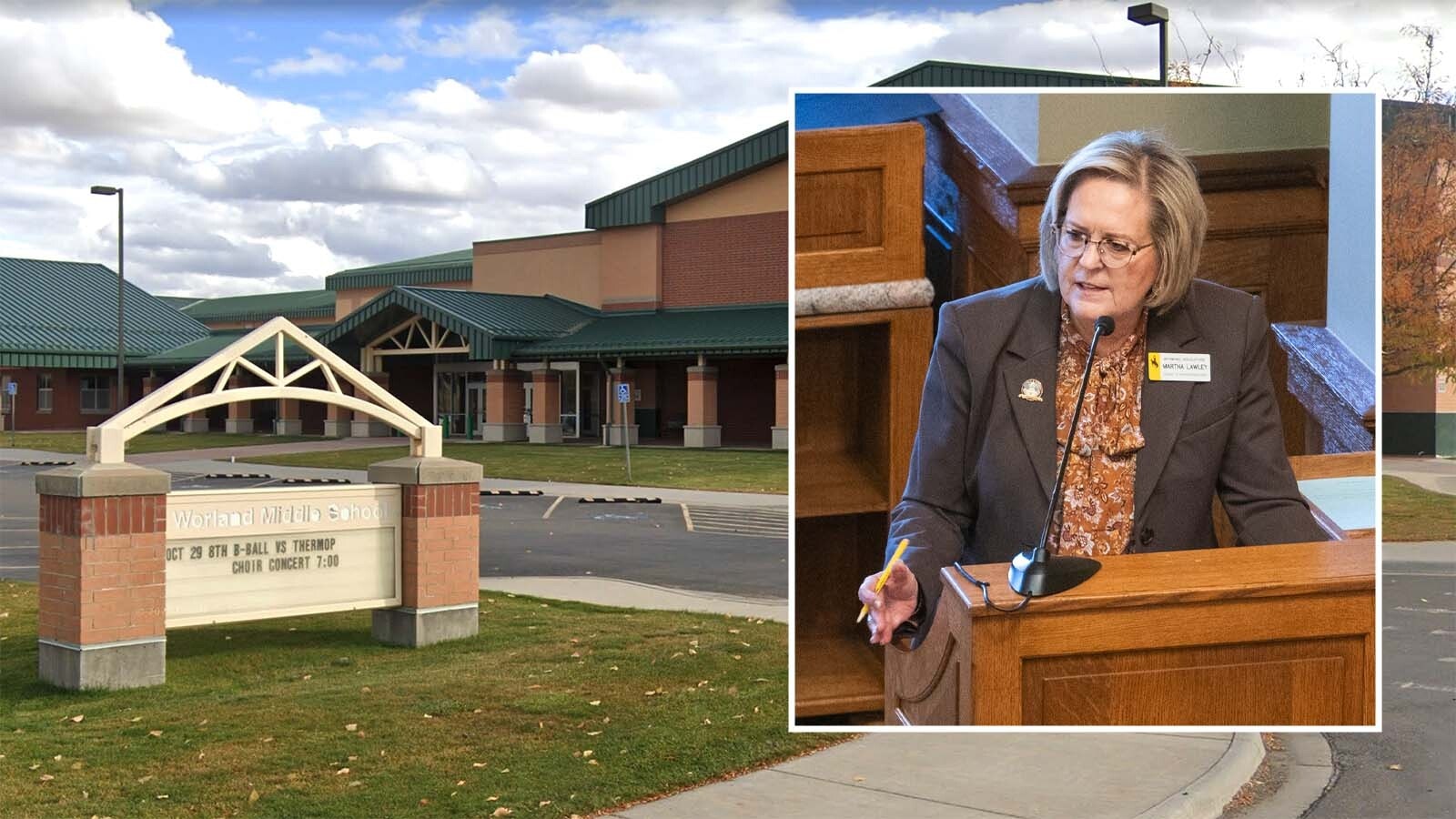A growing debate on how climate science is taught in classrooms was highlighted last week at the National Science Teaching Association’s annual convention in Atlanta, Georgia.
The CO2 Coalition paid for a booth at the event. Despite approving the booth, the NSTA told the group it would have to remove its literature from display at the convention or it would be kicked out.
The material was critical of the association’s position that climate science should be taught as an absolute consensus and never presented as having any uncertainty.
Greg Wrightstone, president of the CO2 Coalition, refused to remove the offending material and was escorted out of the building.
“We accused them of censoring science, and then they confirmed that,” Wrightstone told Cowboy State Daily.
In a YouTube video of the altercation, Wrightstone is told by an event official that, “You can take down your literature or you can go home. It’s your choice.”
“So, we’re being kicked out?” Wrightstone asked.
“Yes,” was the reply. “Unless you take down your literature. Then you can stay.”
When the CO2 Coalition refused again, they were told, “You should pack up and get out.”
No Debate
The NSTA is an organization with 40,000 members dedicated to developing best practices for teaching science, technology, engineering and math
The organization has an official position statement that encourages teachers to present climate science as having a singular view that is only questioned by pseudoscientific skeptics.
“Efforts to properly teach the science of climate change are regularly challenged by those seeking to frame it as being different from other scientific fields, often with claims that it is either ‘uncertain’ or ‘controversial,’” the statement reads.
What the NSTA considers beyond question is not just that carbon dioxide has an impact on the climate. It asks teachers to “clarify that societal controversies surrounding climate change are not scientific in nature, but are social, political and economic.”
Included in what it considers beyond question is that fossil fuels provide a net harm to society.
“Carbon-dense fossil fuels led to the Industrial Revolution and ultimately made our modern way of life possible. The continued extensive use of these same fuels now jeopardizes that very way of life,” the NSTA states.
Cowboy State Daily contacted the NSTA for an interview and didn’t receive a response.
Positive Feedback
The CO2 Coalition published a critique of the NSTA position statement arguing that science is not determined by consensus, but by experimentation and observation.
The coalition’s 120 members are scientists and professionals, 90% of whom have a Ph.D. or commiserate degree, such as a medical degree.
Wrightstone said that until they were kicked out of the NSTA convention, they were receiving positive feedback from teachers who came to the booth.
“We had other teachers saying, ‘I agree entirely with you, but I dare not teach this in my class or I’ll be fired,’” Wrightstone said.
He said his group sold out of its lesson plans in the first two hours.
Wrightstone argues that the ideal classroom wouldn’t be purged of any teaching of the idea that climate change produces catastrophic results justifying a rapid elimination of fossil fuels, but it would present science-based challenges to that viewpoint.
The NSTA, Wrightstone said, “has answers to the climate change situation. And those answers can’t be questioned.”
Too Negative
In Wyoming, the state has standards that all school districts must follow, but individual districts have a lot of room to set their own curricula.
In February, a spokesperson for two districts in Wyoming told Cowboy State Daily their policies require balanced perspectives in the classroom.
That same month, the Texas Board of Education was accused of undermining the basic tenets of climate science when it altered the state’s teaching standards to include discussions of the positive benefits of fossil fuels.
The board member, Patricia Hardy, who proposed the changes, told Cowboy State Daily the NSTA had representatives at a meeting where the changes were discussed. Hardy said she asked one of the representatives how plastics were going to be produced without petroleum.
“They just looked at me, like, ‘What does that have to do with anything?’” Hardy said.
E&E News reported that since Hardy thinks the teaching on climate science is too negative, she rejects mainstream climate science.
Minor Changes
Among the changes to the state education guidelines was the addition of the line, “Materials should focus on scientific processes and recognize the ongoing process of scientific discovery and change over time in the natural world.”
E&E News reported this was a “common climate denial talking point” because, even though it doesn’t in any way deny that carbon dioxide emissions impact climate, the statement suggests that temperatures change naturally.
Wrightstone said it’s a scientific fact that, long before humans were burning fossil fuels, temperatures wildly fluctuated on Earth. At times when life flourished on Earth, temperatures were much higher than they are now, as were levels of carbon dioxide in the atmosphere.
Nonetheless, many feel this shouldn’t be taught in classrooms.
Previously, the board’s guidance stated that teaching materials should include teaching positive aspects of the United States and its heritage. In February, the board changed it to include positive aspects of Texas and its “abundant natural resources.”
E&E News quoted Texas State Board of Education member Rebecca Bell-Metereau claiming these minor changes would “steer schools toward buying books that emphasize baseless climate theories.”
Hardy said the purpose was only to create a more balanced presentation of energy in the classroom.
“We wanted our standards to be balanced. We didn’t want them to be biased,” Hardy said.





